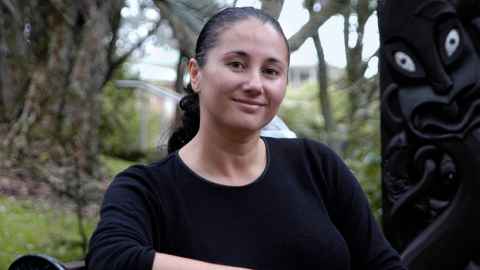Māori identity matters for student success
10 May 2018
Opinion: Identity is a powerful and enduring aspect of self in Te Ao Māori and every iwi has its own distinct whakapapa, history, aspirations, and reputation, writes Melinda Webber.

For example, my mother descends from tribes throughout Te Tai Tokerau/Northland and we have strong whakapapa links to Ngāpuhi – New Zealand's largest iwi.
I descend from revered rangatira such as Dr Hekenukumai Busby - a world renowned expert in waka voyaging, traditional navigation and seafaring; Hone Heke, one of the first Māori chiefs to sign Te Tiriti o Waitangi, who then became so disillusioned with Pākehā notions of partnership that he chopped down the flag staff at Kororāreka three times.
My father descends from the Te Arawa waka and the Ngāti Whakaue peoples based in and around Rotorua. I descend from rangatira such as the scholarly Makereti Papakura – the first Māori woman to attend Oxford University in the 1920s to complete her Masters degree in child development, producing the first extensive published ethnographic work by a Māori scholar; and from Ihenga – an intrepid and revered explorer, tribal philosopher and researcher.
I use my whakapapa here to illustrate that if we want to implement targeted approaches to accelerate Māori educational advancement, innovation, science and knowledge creation, we need strengths-based educational programmes and curricula that focus on the illustrious histories, knowledge, whakapapa, aspirations, goals and potential of Māori students.
In New Zealand we have an important educational policy called ‘Ka Hikitia’ which stipulates that all Māori students should have opportunities to achieve educational success ‘as Māori ’ by experiencing educational programmes that affirm their language, identity and culture.
Māori families want their children to learn in schools that teach them that their ancestors were exceptional – not uneducable.
However, my research has shown that few mainstream classrooms speak the language of Māori children. They don’t include Māori ways of knowing in the curriculum and nor do they hold Māori ancestors up as role models of academic excellence. Yet Māori know, by way of genealogy, cultural narratives, and distinguished history of oratory, that we descend from a long lineage of academic excellence.
Discourses within Māori communities themselves do not focus on academic underachievement and deficit. Instead, the focus is on the strengths, wisdom and opportunities our children need, to flourish in their schools, communities and whānau contexts - as well as wider society.
Māori families want their children to learn in schools that teach them that their ancestors were exceptional – not uneducable.
My research has also shown that there is a strong relationship between Māori identity and the educational outcomes of Māori students. The underpinning assertion is that a positive sense of Māori identity, experienced as cultural competence, academic efficacy and cultural pride, can improve the educational outcomes of Māori by ameliorating their negative experiences at school.
It is for these reasons that Māori language, wisdoms, distinct iwi knowledge and role models matter for Māori student success. Tailoring educational programmes of learning to emphasise the relevance of “living as Māori” to students’ future selves could be an important remedy for the continuing failures of the mainstream classroom.
Māori identities, co-constructed localised curriculum content and transformative school cultures matter for Māori students because they influence their perceptions about the relevance of schooling, and academic success, to their lives.
Assist our students to learn about the science of local rivers. Teach them about the hapū and iwi who have whakapapa connections to that river.
Design programmes of learning that inspire them to learn about how those waterways were critical to transportation and trade in traditional times. Foster a desire and commitment to looking after our waterways in contemporary times using a mix of traditional and contemporary scientific knowledge.
Nurture future Māori scientists, environmentalists and conservationists – and normalise the notion of Māori success in the classroom.
Associate Professor Melinda Webber is a former Fulbright/Nga Pae o te Maramatanga Scholar who has published widely on the nature of Māori identity. Melinda's research examines the ways race, ethnicity, culture and identity impact the lives of young people, particularly Maori students. She is a member of the Faculty of Education and Social Work.
This article reflects the opinion of the author and not the views of the University of Auckland.
Republished with permission from Newsroom, Māori identity matters for student success published on Thursday 10 May 2018.